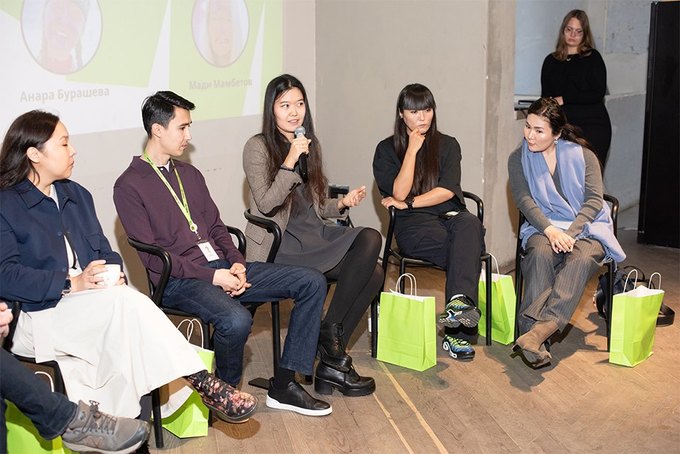Taking children to and from kindergarten, taking sick parents to the hospital, stopping at the supermarket for groceries — women are more likely to do all of this. They especially need the freedom of movement that taxi services provide. They give passengers autonomy, and drivers the opportunity to earn money with a convenient schedule. However, there are still many barriers for women in this sector. In particular, the lack of security.
Almaty hosted a panel discussion from inDrive dedicated to equality in the ride-hailing sector, where experts and activists discussed barriers and opportunities for women. The key topic of the event was how to improve working conditions for female drivers and create a safe environment for female passengers.

How open is the industry?
Ainur Akhanova
inDrive business development specialist in Kazakhstan shared statistics
“90% of drivers are men. It may seem that they are simply better suited for this profession: they can work day and night, and in a confined space with strangers. But we understand that this is not actually the case (editor's note: indeed, according to statistics from the automobile club ACE (Auto Club Europa), women violate traffic rules less often and are less likely to get into accidents). Women are simply exposed to greater risks. Therefore, we try to create conditions so that everyone can feel safe. After all, the majority of passengers are women, from 60% depending on the region. The industry must be inclusive.”
On the other hand, there is a high demand for female drivers — both male and female passengers feel more comfortable with them. Zhanna Urazbakhova, a human rights activist and blogger, explained it this way: “Women feel safer with other women. There are no questions: ‘Are you married? Can I have your phone number?’ Men often perceive working as a taxi driver as a way to meet people.”
Besides safety, there are other factors. For example, men also prefer female drivers: they drive more carefully and keep the car interior clean.

Why are there fewer female drivers then?
Women are more vulnerable on the road than men. Conflicts between drivers are often resolved in raised tones, and force may be used. Many women are also wary of male fellow travelers.
Aray Bekembayev, country manager of inDrive in Kazakhstan, spoke about the following problem: "In some Muslim countries, there is already a separate tariff only for women – both drivers and passengers. For example, in Egypt. But different situations happen. The driver accepts an order from a woman, arrives at the place. And there is a passenger waiting – a man. So far, there are no mechanisms to accurately identify who is making the order."
Another problem is bias. Indera, one of the inDrive drivers, spoke about the attitude towards women behind the wheel: "If you make a mistake on the road, they tell you: "You should have stayed at home, woman." When a man makes the same mistake, no one sends him to the kitchen."

How to fix the situation?
inDrive conducts marketing research and creates portraits of female drivers and passengers to better understand their needs. Ainura clarified:
“We are developing a safety program in three stages: checking drivers before the trip, monitoring during the trip with the SOS function and confidential calls, and collecting feedback after the trip.”
The company is considering launching a new tariff, "Women for Women." "Such a decision will not bring much benefit from a business point of view, but we still follow Arsen Tomsky's vision – and take on this social responsibility," Aray explained. It is quite possible that such a tariff will appear in Kazakhstan as early as 2025.
Zhanna suggested introducing a "certificate of no criminal record for sexualized crimes" that is obtained through government agencies. If there is no such certificate, the applicant will be denied access to the application.
Asem Zhapisheva, a journalist and activist, suggested conducting tests for drivers to assess their level of aggression and sociability before they start working for the service. Another idea is to introduce a training system for users with low ratings so that they can correct their mistakes and become better.

What happens next?
Journalist and pro-feminist Madi Mambetov noted: "The creation of women's tariffs may be a temporary measure aimed at reducing risks. But the ultimate goal is to ensure safety for everyone, regardless of gender."
Anara Burasheva, the first Kazakh woman to conquer Everest, summed up the session: "Each of us has her own Everest – to become a good mother, to achieve heights in her career, or to make the roads a little safer for other women. And the patriarchal world should not interfere with us in this."
inDrive supports this opinion and creates comfortable conditions for the realization of the potential of all women.
The news was prepared with the support of

